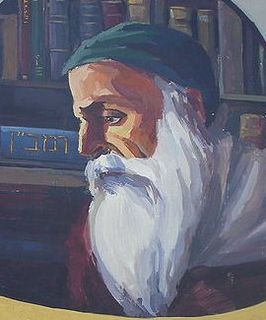Цитата Альберта Эйнштейна
Я не могу представить себе Бога, который вознаграждает и наказывает свои творения или обладает волей того типа, который мы сознаем в себе. Индивид, который должен пережить свою физическую смерть, также выше моего понимания, да я и не желаю иного; такие понятия для страха или абсурдного эгоизма слабых душ.
Связанные цитаты
Я не могу представить Бога, который вознаграждает и наказывает свои творения или имеет волю, подобную той, которую мы испытываем в себе. Я также не могу и не хотел бы представить себе человека, пережившего свою физическую смерть; пусть слабые души из страха или нелепого эгоизма лелеют такие мысли. Я довольствуюсь тайной вечности жизни и сознанием и прозрением дивного устройства существующего мира вместе с самоотверженным стремлением постичь хотя бы малейшую часть Разума, проявляющегося в природа.
Я не могу представить Бога, который вознаграждает и наказывает объекты своего творения, чьи цели смоделированы по образцу наших собственных, — короче говоря, Бога, который является не чем иным, как отражением человеческой слабости. Я также не могу поверить, что человек переживает смерть своего тела, хотя слабые души питают такие мысли из-за страха или смешного эгоизма.
Всякая работа, настоящая работа, которую мы должны совершить, есть самое трудное и мучительное: работа над собой. Если мы не примем на себя это предварительное принятие боли и мучений, они обрушатся на нас в результате неизбежного индивидуального и всеобщего краха. Всякий, кто отмежевался от своего происхождения и своей духовно-чувственной задачи, действует против происхождения. Тот, кто выступает против него, не имеет ни сегодняшнего, ни завтрашнего дня.
О Боге я не могу принять никакой концепции, основанной на авторитете Церкви... Сколько себя помню. Я возмущен массовой индоктринацией. Я не могу доказать вам, что личного Бога нет, но если бы я говорил о нем, я был бы лжецом. Я не верю в Бога богословия, который вознаграждает добро и наказывает зло. Его вселенной правит не принятие желаемого за действительное, а непреложные законы
Бог никогда не наказывает своих детей в смысле мщения за справедливость. Он наказывает, как отец своего ребенка, но никогда не наказывает искупленного, как судья преступника. Несправедливо требовать наказания от искупленных душ, поскольку Христос был наказан вместо них. Как Господь накажет дважды за одно преступление?
Вполне возможно, что человек может добиться успеха, в основном потому, что он сохраняет все свои силы для личных достижений и не вкладывает никакой своей энергии в обучение, которое даст ему возможность действовать вместе с другими. Индивид действует быстро, и мы ослеплены его успехом, лишь смутно осознавая неадекватность его кода.
Если Бог действительно воплотился и если Его Воплощение может по справедливости заставить человека изменить свою жизнь, то у нас нет другой альтернативы, кроме как представить себе это Воплощение как нечто, что все еще присутствует и что будет существовать во все будущие времена. ... То, что происходит в литургическом совершении Евхаристии, - это то, к чему все религии человечества стремились, смутно предчувствовали приближение и, как правило, даже предвосхищали - физическое присутствие божественного Логоса, ставшего человеком, и присутствие его жертвенная смерть посреди собрания, совершающего таинства.
Человек есть продукт причин, не предвидящих цели, которую они достигают; его происхождение, его рост, его надежды и страхи, его любовь и верования — не что иное, как результат случайного сочетания атомов; никакой огонь, никакой героизм, никакая напряженность мысли и чувства не могут сохранить индивидуальную жизнь за гробом.
[T] настоящий социализм должен быть добровольным, а не принудительным. Мы можем представить себе, что даже в самой совершенной системе общества индивид должен иметь права и собственность. Он должен присваивать пищу, чтобы поддерживать свою жизнь. Он должен носить одежду, которая принадлежит ему. Он должен иметь свою частную и исключительную квартиру и должен иметь право находиться в таком месте на божьей земле, откуда его не может выселить помещик общества.
А пока, Боже мой, я могу говорить только с Тобой, потому что никто другой меня не поймет. Я не могу привести другого человека на этой земле в облако, где я живу в Твоем свете, то есть в Твоей тьме, где я потерян и смущен. Я не могу объяснить другому человеку страдание, которое является Твоей радостью, ни потерю, которая есть Обладание Тобой, ни отдаление от всех вещей, которое есть приход в Тебя, ни смерть, которая есть рождение в Тебе, потому что я не знаю я сам ничего об этом не знаю, и все, что я знаю, это то, что я хотел бы, чтобы это закончилось, я хотел бы, чтобы это началось.































